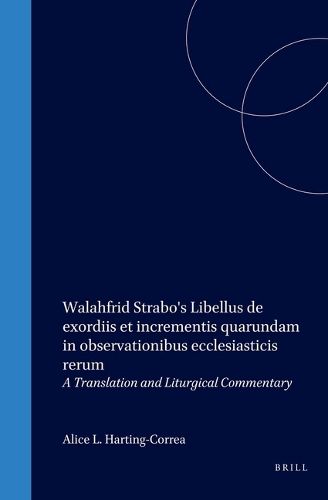Readings Newsletter
Become a Readings Member to make your shopping experience even easier.
Sign in or sign up for free!
You’re not far away from qualifying for FREE standard shipping within Australia
You’ve qualified for FREE standard shipping within Australia
The cart is loading…






The Libellus of the Carolingian monk, Walahfrid, presents a history of the Eucharistic liturgy, with particular reference to topics such as fasting, frequency of communion, and arrangement of sections of mass. Walahfrid also examines the origins of certain liturgical actions in baptism, traces the development of hymnography, and considers the etymology of various terms for church architecture. Walahfrid’s explicit citation of sources should make his work of particular value to the modern historian. The commentary establishes the place of the language and argument in the development of early writings on the liturgy, while also relating it to the wider context of non-liturgical writings from the Fathers to the mid-ninth century. The author’s detailed examinations of Walahfrid’s sources - historical, legislative and literary - show the lines of transmission of texts and their availability in the Carolingian period.
$9.00 standard shipping within Australia
FREE standard shipping within Australia for orders over $100.00
Express & International shipping calculated at checkout
The Libellus of the Carolingian monk, Walahfrid, presents a history of the Eucharistic liturgy, with particular reference to topics such as fasting, frequency of communion, and arrangement of sections of mass. Walahfrid also examines the origins of certain liturgical actions in baptism, traces the development of hymnography, and considers the etymology of various terms for church architecture. Walahfrid’s explicit citation of sources should make his work of particular value to the modern historian. The commentary establishes the place of the language and argument in the development of early writings on the liturgy, while also relating it to the wider context of non-liturgical writings from the Fathers to the mid-ninth century. The author’s detailed examinations of Walahfrid’s sources - historical, legislative and literary - show the lines of transmission of texts and their availability in the Carolingian period.